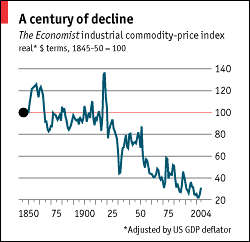The long-awaited thoughts of Sir John Vickers were published this afternoon and are available to read below:
“Rather than suffering a ‘perfect storm’, we had severe weather that exposed a damagingly rickety structure.”
Sir John’s recommendations are aimed at three targets:
- To reduce the probability and impact of systemic financial crises in the future
- To maintain the efficient flow of credit to the real economy and the ability of households and businesses to manage their risks and financial needs over time
- To preserve the functioning of the payments system and guaranteed capital certainty and liquidity for ordinary savers
“Banking, including retail banking, is always going to have risks, and there will be ‘maturity transformation’ so that savers can get access to funds at shorter notice than it is lent to borrowers.”
A quick first scan reveals lots of general questions rather than any specific recommendations. However, without dwelling too long on ceremony, here is my milli-second scan and micro-second interpretation of the major questions embedded within the text:
- How can we improve the financial stability of banking system and maintain competition?
- Do we need to separate retail and investment banking?
- How can we allow both sorts of banking to fail safely and also allow the market to perform its clearing function, to thus remove the concept of the too-big-to-fail banking entity?
- How can we move financial risks away from the taxpayer?
- How do we neutralise and contain the implicit state guarantee for risk-taking activities?
- How can the potential loss-absorbency of banks and their debts be restored credibly?
- Do we need to massively enhance the loss-absorbing capacity of banks beyond the prospective requirements of Basel III?
- Can we or indeed should we try to limit or even try to entirely remove the government guarantee of risky activities, so that the market can safely perform its cleansing process of creative destruction?
- Should we ring-fence the retail banking activities of systemically-important institutions and then require them to be capitalized on a stand-alone basis?
- Does universal banking diversify or magnify risk?
- How do we mitigate the moral hazard of the taxpayer being left to clean up after risky banking operations?
- How will structural reform of systemically-important institutions affect appropriate levels of loss-absorbing capacity?
- How would structural separation enhance the credibility and effectiveness of resolution schemes?
- Given that we go down the separation path, should we incentivise structural separation or compel it?
That set of questions above should keep the banking industry going over the weekend.
“The growth in bank leverage in the run-up to the crisis was explosive. From the 1960s until a decade ago, UK bank leverage was around 20 times on average. But from 2000 it rose sharply, to 30 times and beyond on average, and in some cases much more.”





Here’s a question from an economic illiterate :
How to ensure that any changes don’t prejudice savers? I have a feeling that if banks are required to offer 100% protection to savers, they will use it to justify giving little or no return on saver’s deposits. Isn’t it fair to say that a saver is entitled to a share of the income derived by banks from holding their deposits. Maybe it must be a requirement that savings are at least protected from inflation? I’m sure there are flaws in my questions; i’d be interested to hear some thoughts.
Answers to those questions are simple: choose whatever is nearer to laissez-faire capitalism instead of socialism.